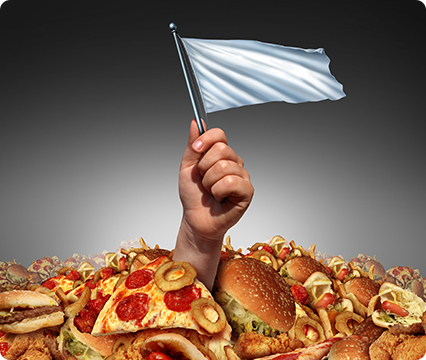Snack food intake in ad libitum fed rats is triggered by the combination of fat and carbohydrates.
In this 2014 study, rats were given unrestricted access to various foods (mixed in with standard chow) on 3 separate occasions each day, before they were assessed on intake and intake-related locomotor activity. The aim was to identify what makes snack foods stimulate extra food consumption on a molecular level. Snack food has already been linked with hedonic hyperphagia (eating food without being in the hungry state) many times, and other studies using manganese-enhanced MRI have previously revealed that the consumption of potato chips by rats given unlimited access strongly activated the reward system of their brains (which is believed to lead to hedonic hyperphagia). In this present study by Hoch et al. fat (F), carbohydrates (CH), and a mixture of fat and carbohydrates (FCH) caused higher food intake by the rats, compared to standard chow (STD). Significantly greater preference was observed for potato chips (PC) over STD and the single macronutrients fat and carbohydrates. Food intake comparable to that of potato chips was only induced by FCH. The fat-free potato chips (ffPC) tested were also significantly preferred over standard chow and carbohydrates, but not over fat, FCH, and potato chips. The conclusion was that fat and carbohydrates as a combination was a major determinant of potato chips triggering hedonic hyperphagia. [NPID: craving, hedonic eating, hedonic hyperphagia, reward, food reward]
Year: 2014

 Navigation
Navigation






